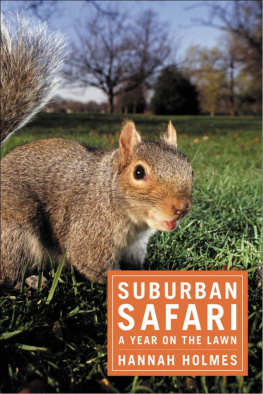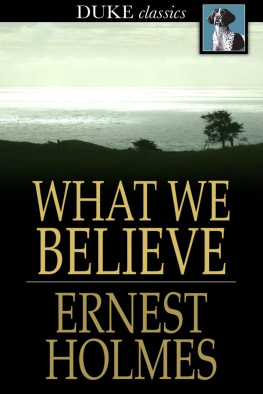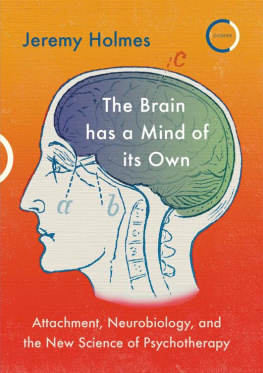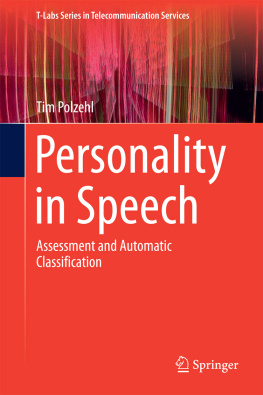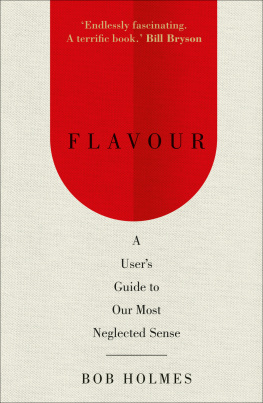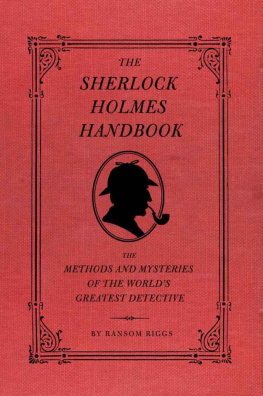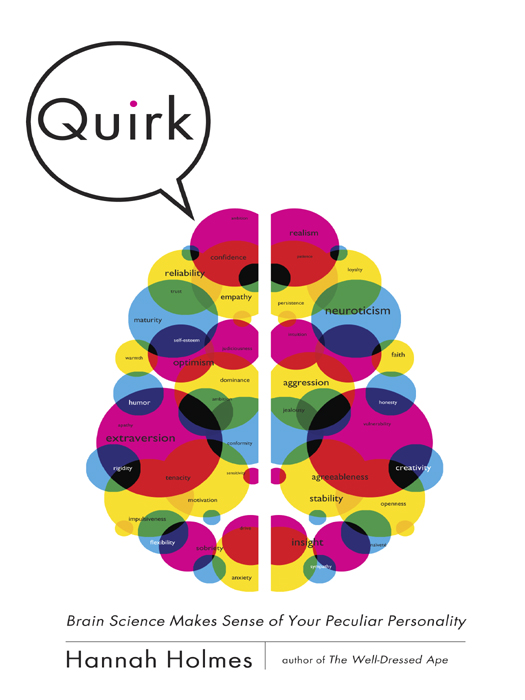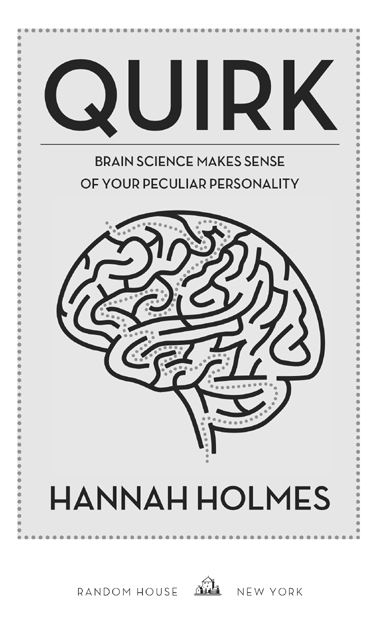ALSO BY HANNAH HOLMES
The Well-Dressed Ape
Suburban Safari
The Secret Life of Dust
Copyright 2011 by Hannah Holmes
All rights reserved.
Published in the United States by Random House, an imprint of The Random House Publishing Group, a division of Random House, Inc., New York.
R ANDOM H OUSE and colophon are registered trademarks of Random House, Inc.
eISBN: 978-0-679-60452-5
www.atrandom.com
Jacket design and illustration: Jamie Keenan Design
v3.1
FOR JOHN
EACH OF US IS SPECIAL.
Each of us is unique.
And every human embodies a magical upgrade, a soul, a spark of the divine, which elevates us above all other creatures.
Spark, schmark! Thats my private title for this book. Humans have no more sacred spark in our personality than squirrels do.
I reached this conclusion when researching depression. Researchers studying the disease were working with a mouse they had engineered to be depressed. If mice have enough personality to mimic our depression, I thought, what else do they have going on?
Quite a lot. Almost everything. Even an artistic side, and something akin to religion. In those tiny heads a full-blown personality guides each animals behavior in a slightly different way. Mice have a whole lot going on. Or, to reverse the animals: Humans dont have much more going on than mice do. In the fundamentals of personality, we can pinch-hit for each other.
How did this come to be? It happened because life on earth is chancy. In the pursuit of successful reproduction, every animal must navigate the equivalent of cats trying to eat you, weasels trying to cheat you, and a flood carrying away your winters supply of food. Life is risky. And the key to personality is that theres no single solution that answers every risk.
For instance, how best to deal with cats trying to eat you? This spectrum of personality is summed up as approach/avoidance. The approach-oriented mouse is calibrated to shrug off risks and charge into the world seeking new foods, meeting many mice, exploring new basements. The avoidance-oriented mouse is tuned to stay home and avoid exposure to cats, which also limits her exposure to fresh opportunities.
Cheating weasels present the quandary of how much a mouse should invest in relationships. Allies support you when youre in trouble, but they also demand a percentage of your time and energyenergy you might spend on your own precious self. The social mouse invests in winning the weasels loyalty. The independent mouse cheats that weasel right back and takes her chances going it alone.
Flooding is even less predictable than friends. In an unstable world, is it best to live fast and die young? Or should you keep your nose to the grindstone, stocking away resources for the future? The short-term mouse skimps on the food-storing and the friend-grooming, and spends more time on eating, breeding, and otherwise seizing the moment. The long-term mouse puts in the effort up front, so that when the environment does falter, he has a backup plan.
And so it is with us humans. Spark, schmark. Were all just trying to beat the system. And again, there is no right answer. Well, actually, any personality that worksthat gets an animal across the finish line with healthy offspringis a right answer. That personality, carried in the genes of the offspring, will win the right to go another round.
Its liberating. I am far more at ease among my fellow mice than I was before writing this book. Once, I took others personalities personally. When someone was rude or selfish or irresponsible, I winced.
But personality isnt personal. Its biological. Its a series of dialsExtraversion, Neuroticism, Agreeablenesseach set to a different temperature. Even the nurture half of personality, which we once thought could counteract the nature of genes, now looks biological. I was a gregarious, if shy, child born to two loner parents. But rather than passively allowing my environment to quash my social nature, my genes prodded me to seek out people, people, and more people. In school I joined teams and clubs. In adulthood I fled the rural life for a perch in the city, among flocks and flocks of people. A personality creates the environmental conditions that it evolved to thrive in.
Much of what were learning about human personality we owe to the mice. Of course, scientists dont use animals for spurious inquiries such as why people prefer vanilla or chocolate. They use mice to understand diseases of personalitydepression, anxiety, addiction, psychosis. Its through the lens of how a brain goes wrong that were learning how a normal brain functions. And its through the mice that were finding better drugs, and environmental treatments, too, for those brains that malfunction. Just as mice have brought us treatments for cancer, theyre now providing relief from mental disease.
It may seem ludicrous that the basics of personality can be written in a brain so small. But again, all animals evolved with the same pressures bearing down upon them: Go forth and eat! Go forth and multiply! Hang back and dont get eaten! Join the group and share the burden! Protect your turf and share only with your own offspring! And those pressures forged the universal dimensions of personality, the dials that come preset in every mouse and man.
Two things distinguish the human personality from that of a mouse. One is our profoundly social lifestyle. Most mammals evolved to fend only for themselves, but a few species found that the benefits of cooperation outweigh (if only by an ounce) the self-centered simplicity of a solitary existence. Our social life is etched into the personality of our entire species. Instinctively, we communicate. Biologically, were built to share. Without ever meaning to, we care. Not everyone cares equally, but even the nastiest person you know cares more than the nicest weasel or bear.
Our other distinction is the sheer size of our brain. Our tremendous wattage, plus the social instincts, yield nuances of behavior that we dont see in other creatures. And when the nuances mingle and collide, amplifying or offsetting one another, our personality becomes complex. Not magical or divine, but really, really complex. Quirky.
So perhaps every personality on earth is, in fact, unique. Not because were each a spark of some divine entity. Evolution rewards diversity; lately science is discovering this is true in many natural systems. And personality appears to be just another of those.
THIS BOOK BORROWS THE Five Factor Model to make sense of your personality. The model slices your temperament into five major factors, then divides each factor into six facets. Herein youll find that same organizationfor the most part. Personality is insanely hard to summarize, whether you use five factors or eighteen thousand.


